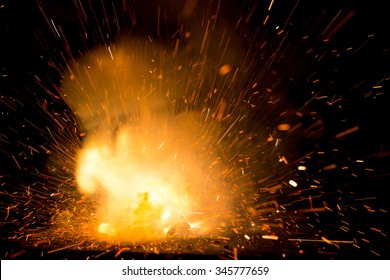Can I still drive my car with white smoke? Why is my car blowing white smoke? What does it mean if my car blow black smoke? What causes white smoke from car exhaust? In this case, bad seals or piston rings cause oil to leak into combustion chamber which then mixes with fuel and burns.

The result is a white or light bluish smoke that comes out from exhaust manifold. One cause of white smoke from the exhaust might be the engine leaking coolant. If the engine leaks coolant, it will be burned by the heat of the engine and then come out as smoke from the exhaust. One of two conditions is responsible for white smoke blowing out of your exhaust. First is normal condition (so you don’t have to panic) and the second is a not so normal condition which should be fixed as soon as possible.
White smoke can be a big problem or not, depending on the thickness. The oil filler cap in almost all the engines releases a faint whiff of smoke , which is a residue of the burnt fuel inside the engine. Older engines produce more hot spots, which make the car smoking under hood but not overheating.

In some cases, the white smoke may be caused due to a deteriorated coolant in the radiator. If the coolant has run out, then it will lead to the engine overheating. Another problem is when your car has a coolant leak.
If the white smoke coming out is in volumes, you should stop the car immediately and call for emergency roadside assistance, including a tow truck. Heavy volume of white smoke means the engine is dangerously overheating. Regrettably, you may be faced with having to purchase a new engine. When you start the car , the engine heats up, and these water droplets are emitted as white smoke.
However, the white smoke persists it could mean that the coolant is leaking to the combustion chambers. A damaged head gasket or cracked engine block leak coolant. As the engine warms up and the condensation dissipates the white exhaust smoke (steam) is no longer seen. As the engine warms up after a few minutes, this white smoke will not be reduced because condensation is dissipated. This is generally steam caused by condensation.
It should reduce or even disappear after the car becomes reasonably warm. When the car overheats for an extended period of time or is low on coolant (causing the temperature to rise), the severe heat can cause the cylinder head gasket to become compromised which causes oil to leak into the coolant and water to leak into the engine. Serious engine damage can occur if you continue to drive. I’ve had that happen twice, one time on a Corolla due to a radiator that sprang a leak, and the other time on a Ford truck, a coolant hose burst.

The white smoke could have been steam from a coolant leak. Condensation can turn to vapor, providing what looks like white exhaust. But excessive white smoke likely means coolant is leaking into the engine combustion chambers. In a diesel vehicle, white smoke can mean that the fuel is not burning due to a faulty injection system, incorrect timing or the engine overheating.
However, in both engine types, it could also be due to the engine not being warm enough. Black or gray smoke in any engine can be caused by fuel combustion remaining incomplete.
No comments:
Post a Comment
Note: Only a member of this blog may post a comment.